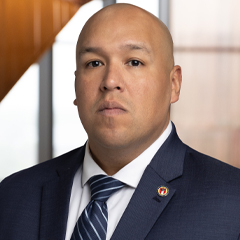In order to raise awareness of civics and government in Travis County, Austin Tech Alliance conducts periodic interviews with our elected officials. Up this month: City of Austin Council Member José Velásquez, District 3.
 What inspired your run for city council and your desire to be involved in local politics?
What inspired your run for city council and your desire to be involved in local politics?
Several reasons inspired me to run for council, but affordability is the issue that takes precedence. I became desperately concerned about the affordability of my hometown. For some time, there has been a growing chasm between the haves and have-nots of this city. Affordability in Austin has become a misnomer and a term that helps people feel comfortable with the lack of affordability in Austin. We need to redefine it and realign our priorities. The city can no longer be a playground for the affluent.
What are your general policy priorities for this term in city council?
When I ran for council, I ran on three main issues that remain my policy priorities; Affordable housing, early childhood education, and broadband access. As a council, we have made positive strides in creating a more affordable Austin, but we have plenty of work to do if we want to make Austin a deeply affordable place where residents of all income levels can feel secure. Currently, my office is collaborating with other council offices and local organizations to address how we can expand early childhood education and broadband access to move towards creating the equitable city our residents deserve.
What do you believe are the biggest issues the people of Austin are facing right now? How can Austin City Council begin to solve them?
Affordability. Income has not kept up with the rising rent and housing prices. This is impacting all residents of Austin. When Austin families are displaced, this not only negatively impacts that family, it affects the economic well-being of our city as a whole and aims to destroy the fabric of our rich and culturally diverse communities.
The City council has begun working to make Austin more affordable by amending some aspects of the land code development, working on practical measures such as minimum parking requirements, and dedicating more land for affordable housing.
We have ways to go, but we remain on the path that centers conversations around affordability and increasing housing supply. We have a heavy lift ahead of us, but I am excited for the work ahead.
What do you think is the best way for Austinites to get involved in local politics?
There are several ways to get involved in local politics, but first, I want to stress to the public how important it is to reach out directly to your council office. My office is working hard to make city hall a more accessible place for all, and that begins with a phone call or email to my office regarding any concern, question, or feedback.
Second, apply to serve on a board and commission. This is an opportunity to be involved in the weeds of policy decisions that are of particular interest to someone. We have many boards and commissions, and very rarely do they properly reflect the demographics of Austin, which is why I also want to encourage more minorities to apply. The City Clerk’s office does a fantastic job of making board and commission accessible to all by including accommodations of all sorts, including accommodations for languages and disabilities.
Third, there are many community groups and advocates throughout Austin. Getting involved by volunteering or attending their community events to learn more about their objectives and checking if they align with you is the first step.
Lastly, vote vote vote. Learn about upcoming ballots by visiting the city website or the number of community news outlets that closely follow each item. If you have questions about an item on the ballot and are looking for a place to gather accurate information, call our office, and we will direct you to a number of resources that can help you make a more informed decision come voting day.
How might the city partner with local businesses or tech to make the city function optimally?
We all saw firsthand how a climate disaster can significantly impact the lives of our residents. As Austin’s business and tech market continues to grow at a significant rate, it would be detrimental if we did not search for methods to create partnerships that can better serve both the business and the residents of Austin.
We have many partnerships that have already improved the quality of life for so many, and I want to continue on this path to ensure that we foster better relationships that are mutually advantageous.
